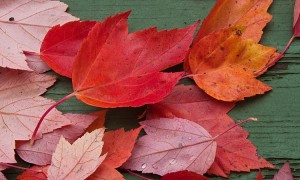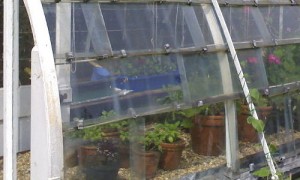In Philly, summer seems to come on quickly. No sooner have you gotten your spring plants in the ground when the full force of a Philadelphia summer hits, including high temps and high humidity. While many of the most popular summer garden plants, such as peppers and tomatoes, love a bit of heat, even they want to cry uncle when the temperature pushes past 90 degrees or so. If you love having a garden at your Philly home, there are a few ways you can keep it happy and thriving, even in the midst of a hot summer.
Pick Your Plants Wisely
What you plant in your garden plays a big part when it comes to how well things are going to go. Some plants just aren’t made to survive in hot weather. For example, lettuce and members of the cabbage family just won’t germinate when soil temperatures are above 85 degrees, according to Mother Earth News. Peas are going to shrivel up and stop producing when the weather gets hot, too.
For the best results, you want to go with plants that love the heat. If you’re looking to plant flowers, go for ones that are heat and drought tolerant, such as lantana and cosmos. Herbs such as sage, thyme, and lavender thrive in hot weather. While some varieties of tomatoes drop fruits and flowers when temperatures inch above 90 degrees during the day, other varieties, with names such as Heatmaster and Summer Set, will handle hot weather fine.
Optimize Watering
Once you’ve gotten the right plants in your garden, you want to make sure you’re making the most of watering. If it’s not raining on a regular basis, you’ll want to water a few times a week, or even daily, if you’re growing in containers. Maintaining a consistent moisture level will keep plants from wilting or dropping their flowers in the summer heat. When watering your garden in a Philadelphia summer, aim the hose or watering can at the soil level, not at the leaves. Heat and humidity, combined with wet leaves, creates an ideal environment for diseases to thrive, and you want to keep your plants as healthy as possible.
A layer of mulch is a good idea in the hot summer months, as it can keep the soil from overheating or drying out too quickly. Spread a layer of mulch that’s about 2 or 3 inches thick on the soil around your plants, to shield the soil and keep the roots from baking. An organic material, such as straw, pine bark, or even dried leaves, provides a good amount of protection and can help feed the soil as it disintegrates.
Protect Your Plants
When you’re outdoors and the sun is beating down on you, ducking under a shade umbrella or awning can help keep you cool. The same is true for your plants. When the temperatures climb and your garden is in bright, direct sunlight for much of the day, draping a shade cover over the plants can give them some protection. You can purchase a commercial shade cloth, which screens out some sunlight and heat, or use an old, woven cotton bed sheet. Drape the cloth over the plants so that it’s not actually touching them and so that the side facing east is open, so that your plants get some sun.
The summer heat can be difficult to take, for everyone. But, it doesn’t last for long, and once it’s over, you’ll be able to really enjoy your garden, and cooler weather plants, once again.
Image Source: Flickr/pml2008
[cf]skyword_tracking_tag[/cf]






